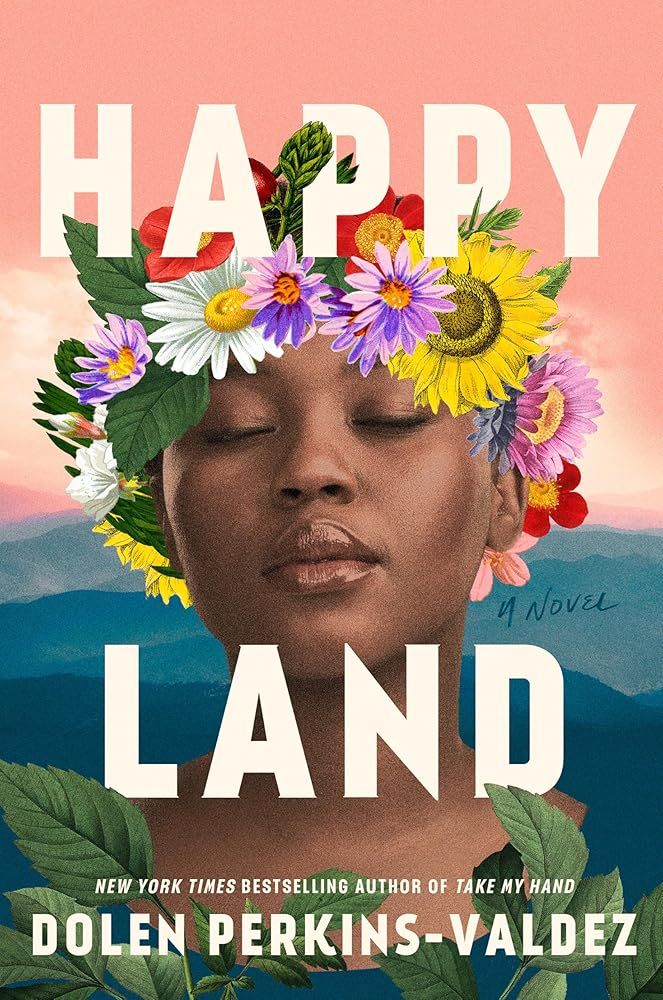By Bookum Team, Oct 8, 2025

In Happy Land, Dolen Perkins-Valdez explores family, legacy, and the fight to reclaim what is rightfully yours. Through the story of Love-Joy Berry, her grandmother Mother Rita, and the history of the Black community known as Happy Land, the book examines how land, memory, and family ties shape identity and resilience. It made for a great book club conversation on our Bookum App! Here are some questions to guide your book club discussion:
Themes of Legacy and Land
1 - The novel centers on the Kingdom of Happy Land, a community founded by formerly enslaved people. What were you overall thoughts of the land, what does the land symbolize for the generations who inherit it?
2 - How does Happy Land explore the loss of Black-owned land across generations? Did it make you think differently about generational wealth and inheritance?
3 - Mother Rita says, “They stole the land. It’s our job to take it back.” How does this statement connect to modern-day issues of property and ownership?
4 - In the story, land becomes a form of memory. How do the descendants of Louella, William, and Robert carry the emotional and historical weight of that land?
5 - The book raises real questions about heir property and how Black families lost land in the 20th century. How did this legal and historical reality impact your reading of the novel?
Generations of Women
6 - The relationships between Nicki, her mother, and Mother Rita are filled with tension and reconciliation. What caused the rift between Nicki’s mom and Mother Rita, and what does it reveal about generational pain?
7 - Louella, Queen of Happy Land, breaks tradition by calling a women’s-only meeting. What does this scene say about the role of women in shaping freedom and leadership?
8 - Across time, the women in Happy Land from Louella to Mother Rita to Nicki fight for autonomy in different ways. Which who's journey resonated most with you and why?
9 - What did the women in “freedom time” want, and how does that echo through the present-day storyline with Nicki?
10 - Flowers play a symbolic role across generations. What do they represent in the lives of Louella, Mother Rita, and Nicki?
Power, Control, and Relationships
11 - The novel portrays a complex love triangle between Louella, William, and Robert. How did you interpret Louella's relationships with both men?
12 - Why do you think the author chose to make William a flawed husband who was both violent and a visionary? What was gained or lost through that choice?
13 - Robert and William’s rivalry mirrors larger conflicts about power and legacy. How do the two brothers represent different visions of leadership? How does Louella embody leadership?
14 - How did you feel about the book’s shift from kingdom-building to personal drama? Did it strengthen or weaken the story’s message?
15 - The question “Are you happy, Nicki?” closes the book. What does happiness mean for each generation in the novel?
Family, Memory, and Reconciliation
16 - Nicki begins the novel disconnected from her family history. How does her journey toward rediscovering her roots shape her identity by the end?
17 - The story suggests that oral storytelling is how many Black histories are preserved. What power do you see in stories “passed down by a mother’s whisper”?
18 - How do Nicki’s experiences in real estate connect to her family’s history with land and ownership?
19 - What do you think Happy Land is saying about forgiveness especially between mothers, daughters, and grandmothers?
20 - In the end, Nicki inherits four acres. How does that small plot of land carry emotional meaning that outweighs its size?
Historical and Cultural Resonance
21 - What real-world Black “safe havens” or intentional communities does Happy Land remind you of? (Examples: Oak Bluffs, Lincoln Hills, Mound Bayou, HBCUs etc)
22 - How does Dolen Perkins-Valdez blend fiction with history to reveal forgotten Black spaces?
23 - Why do you think this story is being told now? How does it connect to today’s conversations about land, reparations, and cultural memory?
24 - Statues appear in the novel as symbols of intimidation and erasure. What does this say about how history is memorialized in America?
